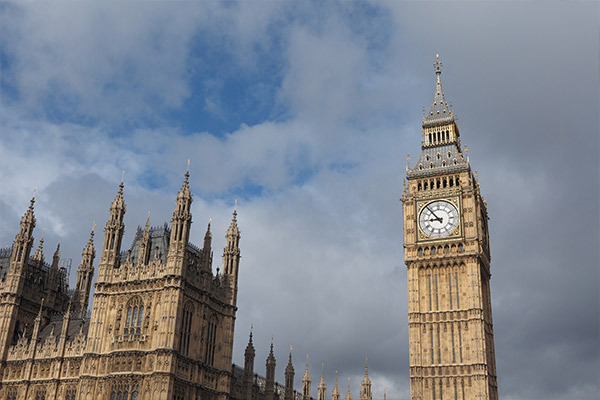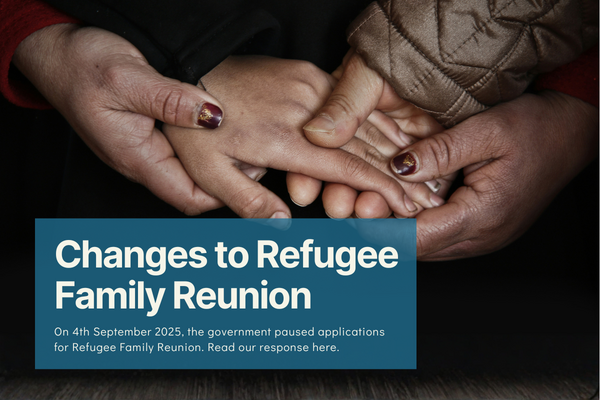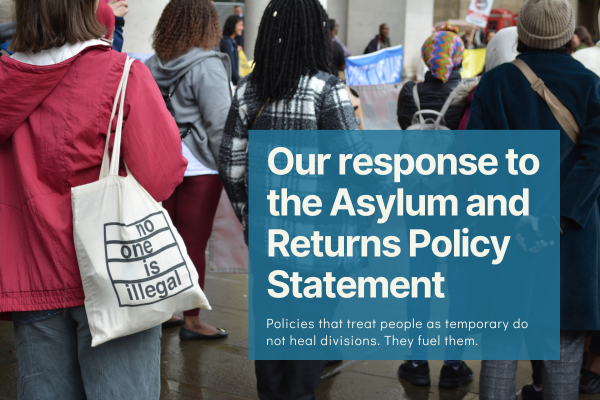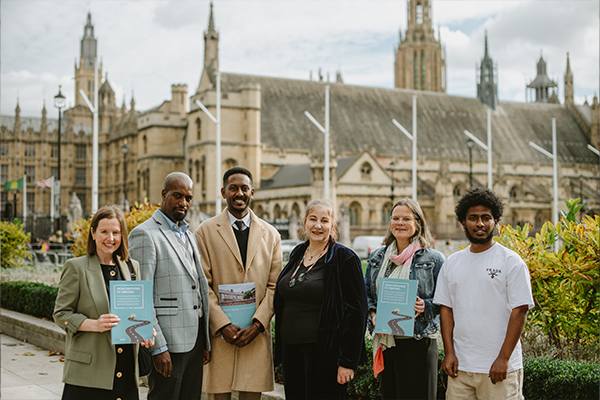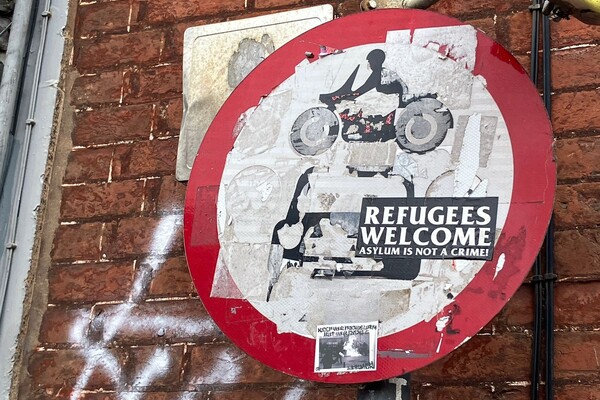Last week we published our initial response to the so-called Illegal Migration Bill, and over the past few days many organisations and outlets have unpacked in more detail the reasons why it is believed to be unworkable, costly and probably illegal. But what impact do we think it will have on our work here at Boaz?
Before we answer that question, we want to acknowledge that the hostile political environment and toxic public rhetoric has a significant impact on all of us, but especially people who have personal lived experience of UK immigration systems including the asylum process. This includes the people we support at Boaz, colleagues, volunteers, friends and family members.
This piece specifically focuses on the practical questions around how our work might be affected by the proposals in the new bill, but we must not ignore the fact that the way these conversations are playing out in the public and private spheres can be confusing, frightening and traumatising for many.
If the bill goes through Parliament, making it almost impossible to claim asylum, will there still be a need for Boaz?
The short answer is yes, we believe our work will still be needed in the months and years ahead. We desperately want to see an end to destitution among people seeking sanctuary, but unfortunately we can't see anything in the bill that suggests there will be a reduction in the number of people left homeless, without any means of supporting themselves. In fact we expect the number of people facing destitution to rise.
At Boaz, we mostly work with people at the end of the asylum process, when they have received a positive or negative decision on their asylum claim. The people we work with may have first claimed asylum years ago, but for various reasons it can take a very long time for someone to reach the end of this process.
As far as we understand it, the new bill will affect people who arrived in the UK and claimed asylum after 7th March 2023. So there will still be people who have arrived in the UK and claimed asylum before this date who will eventually receive a decision on their asylum application. At this point, their asylum support will end, they may become homeless, and they could then be referred to Boaz for support and accommodation.
According to official Government Statistics from June 2022, the total ‘work in progress’ asylum caseload (sometimes referred to as the asylum backlog) consisted of 166,100 cases, over 100,000 of which were waiting for an initial decision. You can read more on the asylum backlog here.
Even with the changes being made to reduce the backlog, such as the new Asylum Questionnaires, it will still take time for all those people to receive a decision on their application. Therefore we anticipate that there will continue to be demand for our services for the foreseeable future.
What about people who arrive after 7th March 2023? Won’t the new rules and processes reduce the number of people who might experience destitution after claiming asylum?
According to the new bill, anyone arriving after 7th March through irregular (or so-called ‘illegal’) routes will have any asylum claim deemed inadmissible. This means they are barred from going through the asylum process. Even if they have been trafficked into the UK, they will not be allowed to access the protections offered by the UK to survivors of Modern Day Slavery.
According to the Refugee Council around 45,755 people arrived by small boats in 2022, and 90% claimed asylum. The intention is that anyone who enters the UK in these ways will be returned to their home country, if it is deemed safe to do so. However, perhaps unsurprisingly, around half of the irregular arrivals in 2022 came from countries which are not on the UK government's list of safe countries, including Afghanistan, Sudan, Eritrea, Syria and Iran. It’s no coincidence that around half of the people who are currently living in Boaz accommodation also come from one of these five countries.
In such instances, people who have arrived on a small boat but who come from an unsafe country would face removal to a third country, such as Rwanda. This is a scheme that is still facing legal challenges and it is something we have written about before.
The reality is that irrespective of whether or not we think people should be forced to leave the UK having come here seeking safety, it simply isn’t that easy to remove people in this way. The Home Office has stated that the Rwanda scheme initially has capacity for just 200 people. So what will happen to the thousands of people who cannot be returned to their home country once those 200 places are filled?
It seems that people from countries which are deemed to be unsafe will be left in limbo, either detained at huge cost, stuck in hotels with minimum support, or left in destitution, with no right to claim asylum, to work, or to access benefits. This will undoubtedly increase the likelihood of people being forced into exploitation, as they will have no other way to survive.
All the signs would suggest therefore that this bill will not reduce destitution but will in fact lead to a surge in people who have already fled trauma, war and persecution, being forced into homelessness and exploitation.
If people are labelled as “illegal” and not allowed to claim asylum, does that make the work Boaz does illegal?
It is surprising how often we are asked whether our work is illegal. First and foremost, we believe that no one is illegal. If someone fears for their life and ends up entering a country through an irregular route (e.g. a small boat across the Channel), they should not be penalised for the method of entry, according to Article 31 of the 1951 UN Convention on the Status of Refugees.
Fortunately, there is nothing in the new bill that gives cause for concern in terms of the legality of our work at Boaz. We will continue to offer practical care, compassion, solidarity and advocacy with and for people seeking sanctuary in our communities.
So how will Boaz respond to the bill?
We are working hard to keep up to date with the legal processes and changes as a result of this bill, and we are grateful for partner organisations who have expertise in this area. At the moment, we are reviewing our wider organisational strategy and we are keeping the policy context at the front and centre of our conversations.
Having said that, it isn’t guaranteed that the bill will be successful in its entirety, so we don’t want to jump ahead too quickly. The Nationality and Borders Act is still facing legal challenges, and rather confusingly, this new bill actually makes some of the Act (which was only passed last year) irrelevant.
It is highly likely that as things proceed, there will be more legal challenges ahead. Even the Home Secretary herself admitted the bill might be incompatible with the law, including the European Convention on Human Rights.
What can I do to respond?
Even though this bill is being pushed through Parliament at pace, with little chance for meaningful scrutiny, it is still worth writing to your MP. You can find out how your MP voted here and there is some advice on what you might write here.
You could also sign this petition to formally oppose the bill, write to your local newspaper, speak out on social media or exercise your right to peaceful protest.
At Boaz, we will continue to speak out against the bill. We will also continue with our work providing specialist, one to one support and safe, stable accommodation for those who have become destitute after claiming asylum, so that people seeking sanctuary in the UK can experience life in all its fullness, and we would be so grateful if you would consider standing with us and supporting our work in these challenging times.

